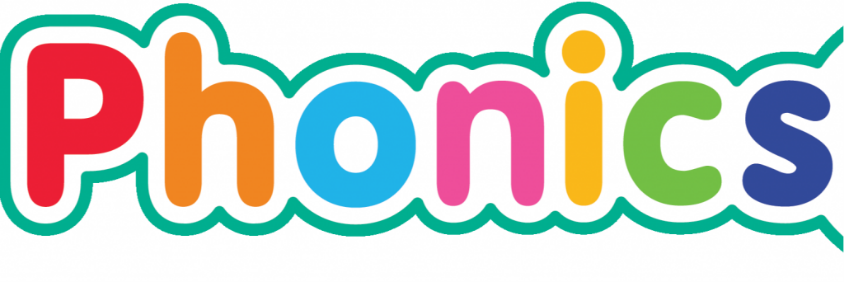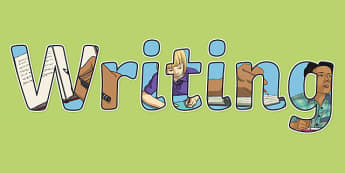English - Phonics, Reading & Writing

Phonics Intent – Why Our Phonics Curriculum Shines
At Green Park Community Primary School, we believe that early phonics teaching is the key to unlocking a lifelong love of reading and writing. We know that daily, systematic phonics lessons not only primes children’s minds but also leads to an earlier start in reading and spelling. Our progressive, systematic synthetic phonics programme is designed to build strong phonemic awareness, giving every child the essential tools to become a successful reader.
Phonics is our way of teaching children to "crack the code" of written language. By learning the sounds of individual letters and how these sounds work together, children can decode words as they read and know which letters to choose when they write. Within our programme, children learn to hear and discriminate sounds in words, blend and segment these sounds fluently for both reading and spelling, and appreciate the many nuances of our written code.
Our carefully designed curriculum is built on progressive expectations and clear stages. Supported by resources from a DfE-approved phonics provider (Little Wandle), every teaching material and resource has been thoughtfully selected and sequenced to match our high learning expectations, effective teaching practices, and curriculum content. With clear time scales, defined end points, and robust intervention and assessment practices, our quality-first teaching ensures every child makes steady progress.
Phonics Implementation – Bringing Learning to Life
Our Phonics curriculum is designed to develop our children into independent, confident readers who enjoy fluently reading with both pleasure and deep understanding. At Green Park, we follow a carefully structured, progressive programme based on the Little Wandle scheme that evolves with our children as they grow.
In our Early Years, phonics is a central part of our reading curriculum. In Reception, children work mainly on Phases 1-4, learning to listen for phonemes in various positions, recognise and write individual graphemes, and begin blending and segmenting sounds to read and spell. Phonics is taught daily using our engaging model: revisit, teach, practice, and apply. Clear end points guide progress, while effective assessment and targeted intervention ensure that every child advances confidently. Reading materials and book expectations are closely aligned with the phonics phases being taught.
As children move into Key Stage 1, phonics continues to be integral. In Year 1, daily lessons help consolidate skills, with children gradually deepening their understanding of alternative phonemes in structured stages. Ongoing assessments and timely interventions support every pupil, culminating in the statutory phonics screening check during the Summer Term.
In Year 2, our teaching extends to enhance phonics skills further. Children learn to read words with alternative pronunciations, and explore suffixes, prefixes, contractions, and homophones, which enriches their independent spelling. Each classroom is well-resourced with phonically decodable texts that match individual abilities, and our curriculum aligns seamlessly with Year 2 and Year 3 Spelling expectations. For those who require extra support, targeted small group interventions are provided, with children who do not pass the Year 1 Phonics Screening Check receiving additional support and a resit at the end of Year 2.
In Key Stage 2, we continue to offer additional intervention and support for children working below age-related expectations. Through careful assessment and observation, teachers identify those needing further help, and we utilise the Little Wandle intervention schemes—comprehensive, scripted programmes designed specifically for KS2—to close any gaps. In some cases, a Support Plan is introduced to ensure every child receives the tailored assistance they need.
Phonics Pedagogy – How We Deliver Our Teaching
At Green Park, our phonics lessons follow the Little Wandle approach—a structured yet highly engaging method that brings learning to life. A typical lesson involves:
Revisit: We start by reviewing previously learned sounds to build a strong foundation.
Teach: New sounds and skills are introduced through interactive, hands-on activities that encourage active participation.
Practice: Children then engage in guided practice, either individually or in small groups, applying their new skills with fun and supportive activities.
Apply: Finally, they apply what they’ve learned in meaningful contexts—whether through reading decodable texts or engaging in writing exercises—to consolidate their understanding.
This approach is supported by clear learning targets, regular assessments, and immediate, constructive feedback, ensuring that our phonics teaching is both effective and inspiring.
Phonics Impact – Measuring Success
We know our phonics programme is making a real difference at Green Park. By the end of each phonics phase, children are expected to know, apply, and understand the skills and techniques outlined in our phonics plan. We continuously assess children’s phonics skills alongside their overall reading progress using our robust internal tracking system. The impact of our curriculum is evident through:
Reflections on overall standards achieved against planned outcomes and the results of the phonics screening checks in Years 1 and 2.
Celebrations of individual progress, supported by self, peer, and teacher feedback that highlights growth and skill development.
Regular pupil discussions (Pupil Voice) where children share their learning experiences, evaluate their achievements, and set new goals.
Termly tracking of standards across the curriculum, ensuring every child is progressing steadily and confidently.
At Green Park Community Primary School, we’re immensely proud of our phonics programme. By providing a strong foundation in reading and writing through our structured and engaging approach, we are setting our children on a path to lifelong success and a deep, enduring love of learning.

Reading Intent
At Green Park Community Primary School, we believe that a passion for reading and a love of books is central to our educational ethos. We want every child to discover the joy of reading high-quality children's literature, exploring books by a range of authors and experiencing a world of imagination. We see reading as much more than just a skill—it’s a window to the wider world that helps children develop vocabulary, gain new experiences, and learn about diverse cultures and ideas. Through quality-first teaching and a carefully sequenced range of strategies, we nurture the behaviours that allow our children to become discerning and critical readers. Our central aim is to ensure that every child becomes an enthusiastic, fluent, competent, and independent reader, enabling them to access the rest of the curriculum with confidence. We also place a strong emphasis on building home-school partnerships, encouraging parents and carers to support and celebrate reading at home.
Implementation
Drawing on current research, our reading curriculum is both progressive and structured, evolving alongside our children as they grow. Each year group employs a variety of approaches and teaching strategies, selected specifically to meet the needs of our diverse learners. In our classrooms, reading is brought to life through a mix of shared and guided reading sessions, where children have regular opportunities to listen to stories read aloud with expression and to engage in discussions about the text. We also prioritise independent reading, setting aside dedicated quiet time for children to explore a rich, structured range of texts that cater to their ability levels.
Our extensive reading resources include a well-stocked literary environment featuring fiction, non-fiction, poetry, and reference materials. Through our book system, we ensure that reading materials are graded to meet age-related expectations. Early Years and KS1 pupils start with decodable, phonetically matched texts that build on their foundational skills, while older children have access to a broader range of books that challenge their comprehension and encourage independent choice. Our medium-term schemes of learning ensure that teaching remains balanced, with varied strategies that promote both teacher-led and child-led learning. Regular home-school reading activities, such as daily Reading Records, further support this approach, encouraging parents to actively participate in their child’s reading journey.

Impact
The impact of our reading programme is clear in the way our children engage with texts and express their ideas. Our robust assessment and tracking systems help us monitor each child’s progress, ensuring that they:
- Develop a genuine enthusiasm for reading and are motivated to explore new ideas.
- Enjoy listening to and sharing stories, fostering both fluency and confidence.
- Employ a range of decoding strategies and demonstrate an understanding of diverse texts.
- Read aloud with appropriate expression and intonation, enhancing their comprehension and enjoyment.
- Make steady progress from their starting points, achieving excellent outcomes at each key stage.
At Green Park, we are incredibly proud of our children’s growth in reading. By fostering a vibrant reading culture and building strong partnerships with families, we are laying a solid foundation for lifelong learning and success.

Writing Intent – What We Aspire for Our Children
At Green Park Community Primary School, we’re incredibly proud of our bespoke writing curriculum, which supports our children as they grow into creative and imaginative writers with a strong foundation of knowledge and technical skill. We believe that writing should be an immersive, exciting experience—one where our children not only put words on a page but also bring their ideas to life. Whether they are storytellers, poets, journalists, or even the occasional mischievous villain, our aim is for every child to leave Green Park as an enthusiastic, confident, and competent writer. We champion writing as a process, where planning, editing, re-drafting, and publishing are celebrated steps in the journey. Our approach is grounded in a growth mindset, ensuring that every written piece is a stepping stone towards excellence. We want our children to acquire the language skills they need to express themselves, write fluently and legibly, and use their reading experiences to shape well-structured, purposeful writing for a range of audiences.
Writing Implementation – Bringing Our Words to Life in the Classroom
Our writing curriculum is delivered through rich, engaging experiences that are carefully planned and consistently reviewed. Using the principles of Talk for Writing, our lessons are designed to inspire and challenge our pupils across all year groups—from EYFS through to Year 6. In our classrooms, writing is taught in specific, meaningful contexts that include:
Engaging Writing Hooks: We start each session with carefully selected prompts to capture children’s imaginations and spark their creativity.
Immersive Reading and Speaking Opportunities: Our children listen to stories, discussions, and spoken word performances that are linked to purpose and audience, helping them ‘magpie’ language and features to build their own toolkits.
Modelling and Shared Writing: Teachers plan, model, and share the writing process, demonstrating the thought processes and techniques of competent writers.
Independent Writing and Editing: Children are given increasing opportunities to write independently, while also learning to edit and re-draft their work to ensure it meets the intended purpose and resonates with their chosen audience.
Publishing and Performing: We encourage our pupils to bring their writing to life—whether that means publishing their work, sharing it with peers, or using technology to enhance their creative expressions.
Our medium-term schemes of learning ensure that our writing curriculum remains balanced and progressive. Each stage is underpinned by effective teaching pedagogy, quality-first teaching, and a strong focus on technical skills such as grammar, punctuation, spelling, and handwriting. Our adaptive approach is informed by current research and best practice, including guidance from the EEF, ensuring that our teaching remains both innovative and effective.
Writing Impact – The Mark of Success
The impact of our writing curriculum is visible in the way our children engage with and enjoy the writing process. By the end of each key stage, pupils are expected to know, apply, and understand the skills and techniques outlined in our detailed curriculum plans. Our robust internal assessment and tracking systems enable us to monitor progress closely, and we celebrate our children’s achievements in several ways:
Inspiration and Motivation: Our children are inspired and motivated to write, finding genuine joy in the creative process.
Effective Oral Composition: They use spoken language to compose ideas and check grammatical conventions, enhancing both their writing and speaking skills.
Ambitious Use of Language: Drawing on a rich vocabulary and drawing inspiration from the texts they read, our children write with clarity, confidence, and originality.
Independent and Resilient Writers: They learn to edit and re-draft their work, developing resilience and independence as they refine their written pieces.
Excellent Attainment: Our pupils consistently achieve excellent outcomes, with their progress in writing reflecting the overall strength of their learning journey.
At Green Park, we’re incredibly proud of the strides our children make in writing. Through our dedicated teaching, strong home-school partnerships, and a curriculum that encourages risk-taking and creativity, we lay the foundation for lifelong success. Every written word becomes a testament to our commitment to developing not just competent writers, but confident, resilient, and inspired individuals.
--------------------------------------------------------------------------------------------------------------------------------------------------------------------
The English Progression Documents (both knowledge and skills)
